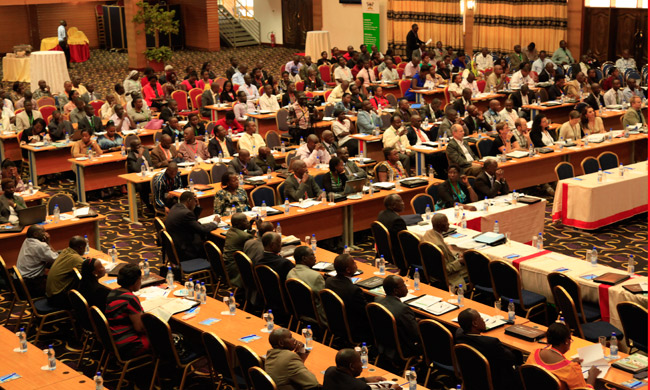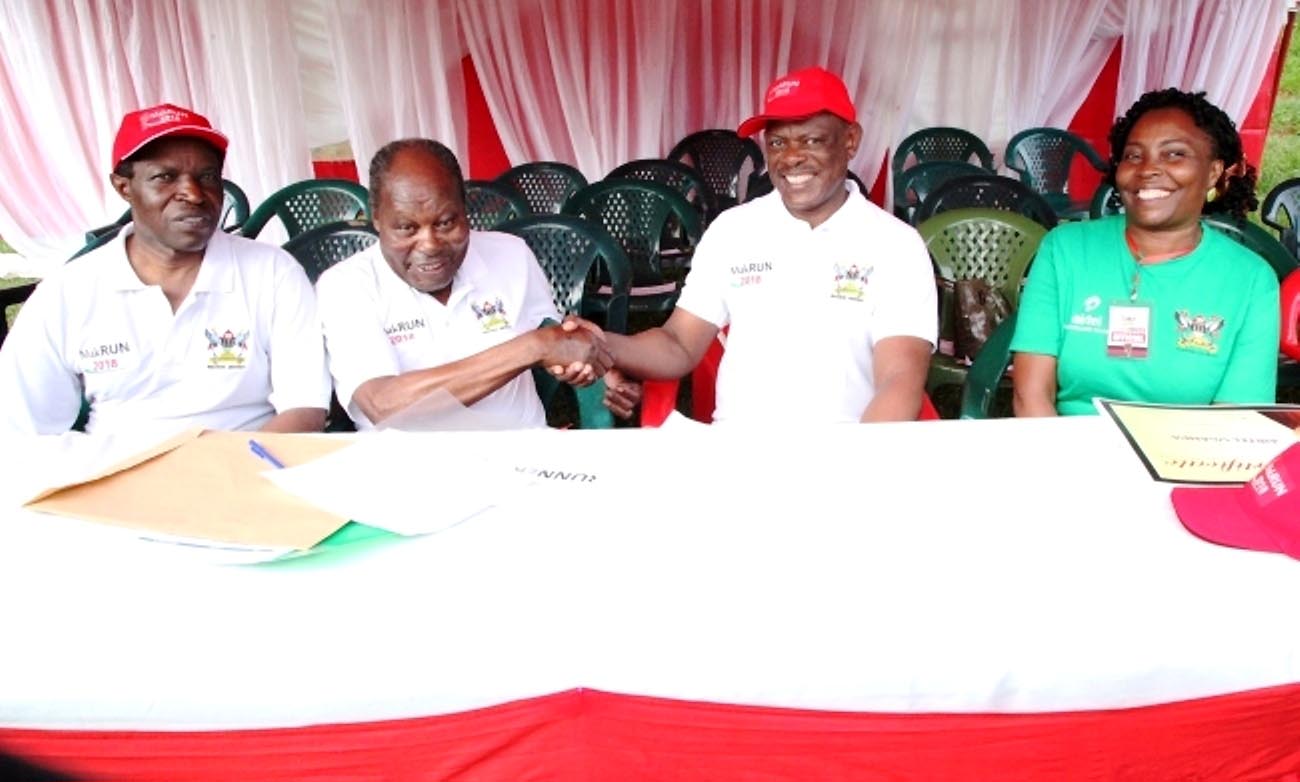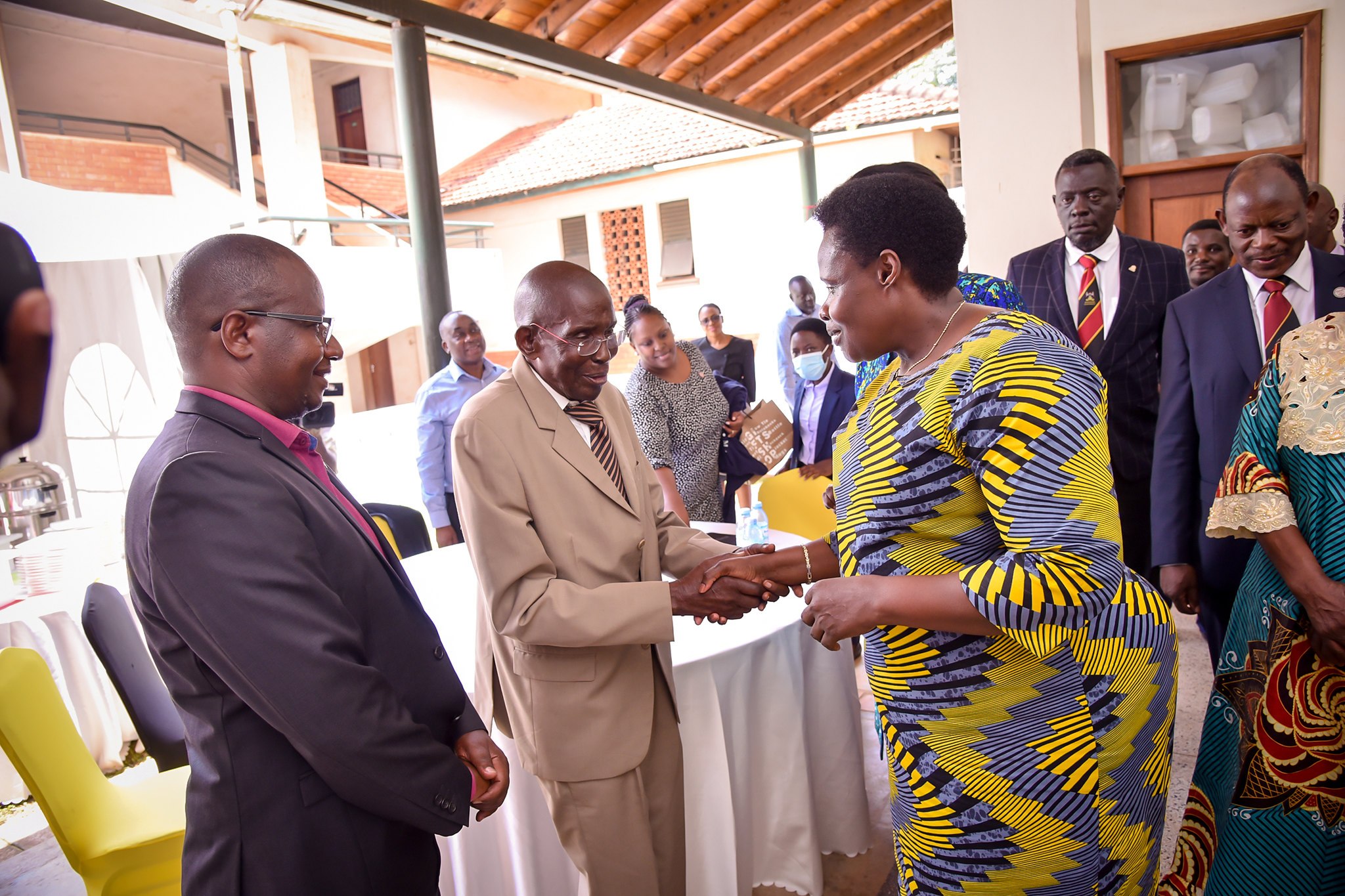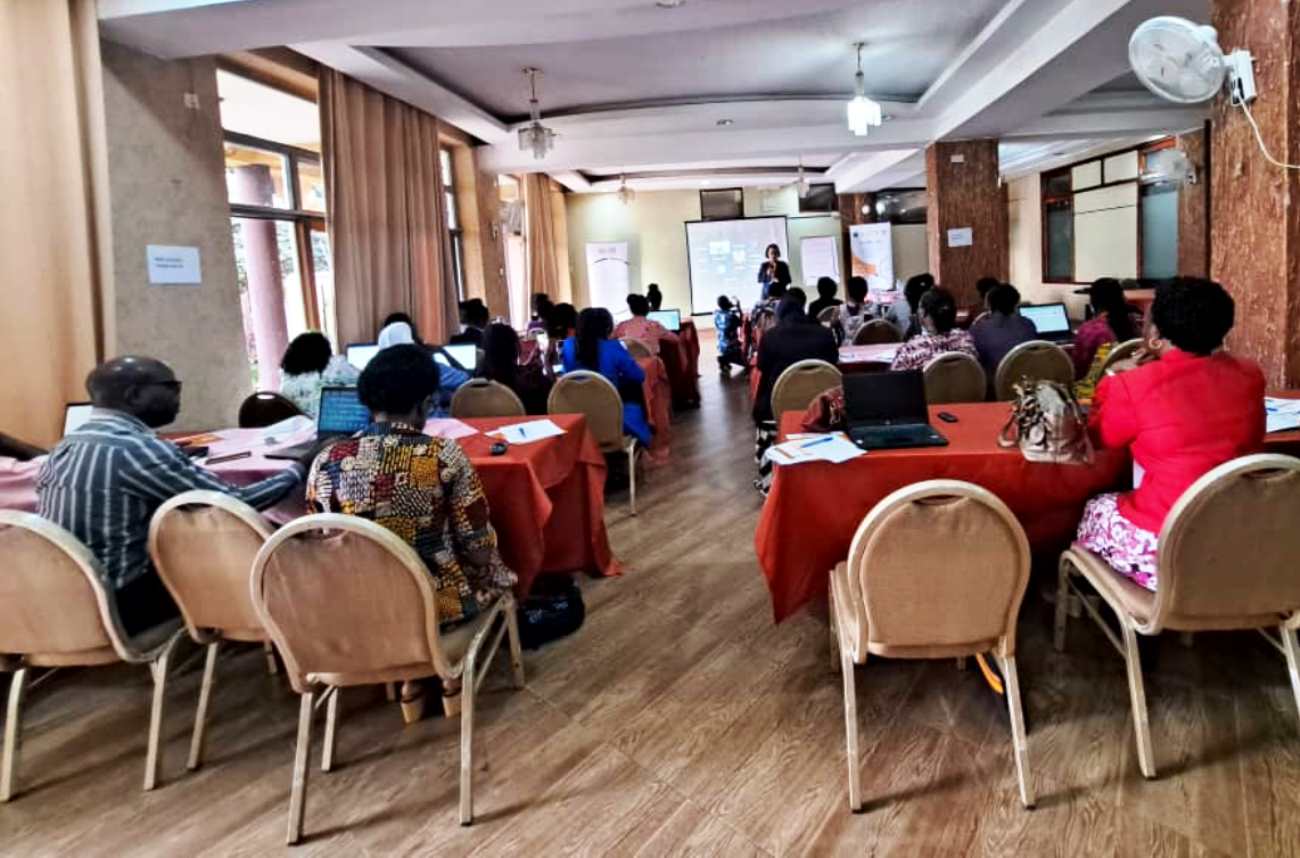 The Mak-Sida International Research and Innovations Dissemination two-day Conference closed with a call for more research and innovations across the different disciplines. The Conference, held under the theme ‘Community transformation through Research, Innovations and Knowledge Translation’, brought together scholars from different parts of the world to share their research findings across five sub themes of: Health and Health Systems; Natural Resource Utilisation, Conservation and Environmental Sustainability; Food Security, Safety and Value Addition; Culture Socio-Economic Transformation, Social Justice, Governance, Conflict and Disaster Management; and Advances in Education, Science and Technology. Over one hundred (100) papers were presented across these themes as both oral and poster presentations.
The Mak-Sida International Research and Innovations Dissemination two-day Conference closed with a call for more research and innovations across the different disciplines. The Conference, held under the theme ‘Community transformation through Research, Innovations and Knowledge Translation’, brought together scholars from different parts of the world to share their research findings across five sub themes of: Health and Health Systems; Natural Resource Utilisation, Conservation and Environmental Sustainability; Food Security, Safety and Value Addition; Culture Socio-Economic Transformation, Social Justice, Governance, Conflict and Disaster Management; and Advances in Education, Science and Technology. Over one hundred (100) papers were presented across these themes as both oral and poster presentations.
In her special paper presentation on Viral Hemorrhagic fevers, Dr. Monica Musenero Masanza, the Assistant Commissioner Epidemiology and Surveillance in the Ministry of Health, shared that more research needs to be conducted to avert the effects of such fevers. She shared experiences from the Ebola hit Central African region, where she was actively involved in combating the scourge.
“Viral hemorrhagic fevers (VHFs) are caused by four distinct families of viruses. These include: Arena viruses (Lassa fever), Filo Viruses (Ebola and Marburg fever), Bunya viruses (Cremean Congo) and Flavi viruses (Yellow fever),” she said. “The absence of locally available research has led to delayed recognition of these viruses which are mainly hosted in animals, since human beings are accidental hosts. It is still not known where the virus really hides. We start running after seeing deaths. It catches us by surprise because the origin is unknown. There is need for more research to combat the high tendency of recurrence of these fevers. I am here to stir you as academic institutions to engage more in both basic and intensive research,” she emphasized.
Dr. Musenero continued to share the courageous fight to contain ebola in West Africa, particularly the countries of Liberia, Sierra Leone, Guinea, Cameroon, where she headed the medical team. After her presentation, the audience gave her a befitting standing ovation.
Susanne Spets, the Deputy Head of Mission of the Embassy of Sweden, who represented the Swedish Ambassador, H.E. Urban Andersson, observed that Sida support is aimed at improving conditions in Uganda. “One third of the activities supported by Sweden are in the area of Medical Sciences. The investment is expected to contribute to an improved health status of ordinary Ugandans,” she said. “The agreement period has included the preparation for a new agreement 2015- 2020. The process has included an open call for projects proposals with Swedish University partners. 17 projects that will be implemented by 5 universities in Uganda and their 11 Swedish University partners have been selected.
 The Chairperson Makerere University Council, Eng. Dr. Charles Wana Etyem represented by the Deputy Chairperson of Council, Hon. Irene Ovonji Odida observed that, “Being the premier academic institution in Uganda, Makerere University is a major source of various home-grown innovations and technologies that are contributing to the transformation of our society. Many of these ground-breaking innovations and technologies have been hatched through the Sida bilateral research programme. Our work through the Sida research programme has contributed to the enhancement of Makerere University’s visibility and performance, thereby positioning Makerere University at the forefront of the global knowledge economy. We therefore thank Sida for being a strategic partner to human resource capacity building in this country as shall be exhibited in the presentations at this conference.
The Chairperson Makerere University Council, Eng. Dr. Charles Wana Etyem represented by the Deputy Chairperson of Council, Hon. Irene Ovonji Odida observed that, “Being the premier academic institution in Uganda, Makerere University is a major source of various home-grown innovations and technologies that are contributing to the transformation of our society. Many of these ground-breaking innovations and technologies have been hatched through the Sida bilateral research programme. Our work through the Sida research programme has contributed to the enhancement of Makerere University’s visibility and performance, thereby positioning Makerere University at the forefront of the global knowledge economy. We therefore thank Sida for being a strategic partner to human resource capacity building in this country as shall be exhibited in the presentations at this conference.
Day one of this conference,20th April 2015, was presided over by the Minister of Education, Science, Technology and Sports, Hon. Jessica Alupo, who was grateful for the Swedish Government support to Uganda. “The Government of Uganda will also continue supporting initiatives aimed at promoting research and innovation. As you may be aware, the Government has already made significant impact through the Presidential Science Initiative, to which H.E The President of Uganda, committed UGX.25billion to support research and innovations in science-based colleges at Makerere University. The funding has also helped Makerere to put up state-of-the-art teaching and research laboratories to stimulate scientific innovations. 
According to the Makerere University Vice Chancellor, Prof. John Ddumba-Ssentamu, the Swedish Government has supported learning and research at Makerere University to a tune of SEK515.11 million (USD $74 million). “A great proportion of research funding at Makerere University is from Sida. Sida, together with other development partners, has played a fundamental role in augmenting the internally generated funds at Makerere University, which has helped to substantially tackle the chronic shortage of funds for research,” he said in appreciation.
“Research dissemination and translation of outputs into policy briefs has not been successful as would have been desired. Both senior researchers and students have collected plenty of raw data, but these have not been translated so as to make them to be able to serve the reason(s) for which they are gathered. To solve this problem, emphasis, especially in the successor Sida programme, has been put on the proper dissemination of interdisciplinary research findings, thematic research inventories, so as to contribute to and enhance evidence-based policy development. This would make the programme directly relevant to the national development goals,” he added.
The Chairperson Conference Organising Committee, Prof. Mukadasi Buyinza who is also the Director, Directorate of Research and Graduate Training, hailed Sida for the enduring support to Makerere University. Tremendous achievements which include the creation of an environment conducive to high quality relevant research through investment in human resource development, ICT, library resources, laboratory and field site infrastructure have been realized as a result of this support.

“I am happy to report that since 2000 when our cooperation began, over 150 staff have completed PhDs and a host of them have completed master degree programs. This could be attributed to the increased completion rate by doctoral students due to the enhanced capacity for supervisors to supervise graduate students, strong mentorship programme and graduate seminar series coordinated by Makerere University,” he said.
“We are grateful to government through the Ministry of Education Science, Technology and Sports for having secured over US$200 million from African Development Bank and other agencies to finance the improvements and expansion of higher education Science and Technology facilities at the public universities, Makerere University inclusive. The steps the Government has taken are commendable but we urge government to strategically investment more in research and development in order to spark economic growth and human capital development,” he added.
The Chancellor, Prof. George Mondo Kagonyera pointed out that “It is important for academic and research institutions to conduct cutting edge research but as long as that research is not reaching the community it is meant to serve, it remains but a disservice. In order for all this wonderful research to impact community it has to be translated into the language that can easily be understood by members of public, and policy makers in particular. It is only when our research can easily be understood that the policy makers will advance our aspirations and defend our cause when it comes up for debate.”
Dr. Katri Pohjolainen, the Senior Research Advisor at the Swedish Embassy hailed the conference for its output. “The conference has displayed an enormous amount of creativity, perseverance and hard work taking place both in Uganda and Sweden for the past five years. The sessions I did attend were professional, exciting and a learning experience with open and frank discussions. The two days have been an academic exercise of high caliber. I hope all the research results presented will be published and that scientific discoveries will be patented. I hope the research results will reach out to communities and will be translated into policy documents and used by the different organizations and ministries,” she said.
The Deputy Vice Chancellor, Finance and Administration, Prof. Barnabas Nawangwe closed the conference with a call for maximum utilization of the research funding. ”The support we have received should be very well utilized to make a contribution however small to reversing the very sad story of Africa. I believe that Makerere is the greatest University on the African continent. We have people dedicated to their work as demonstrated by the resilience despite all the difficulties people encounter as they carry out first class research, publish in international journals and innovate for society. Let us continue doing so,” he said.
26 people were recognised for their active role in the success of the Makerere-Sida bilateral cooperation over the years. Please see downloads below for that detailed list of recipients.
Article by Marion Alina
Photos by Landmark Media Consultancy Ltd
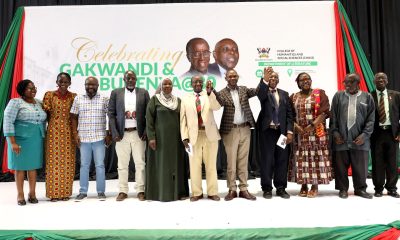
 Humanities & Social Sciences1 week ago
Humanities & Social Sciences1 week ago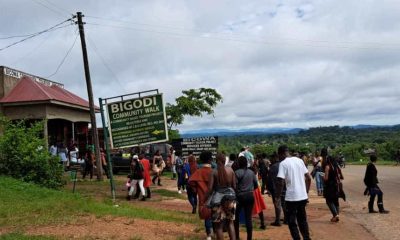
 Agriculture & Environment2 weeks ago
Agriculture & Environment2 weeks ago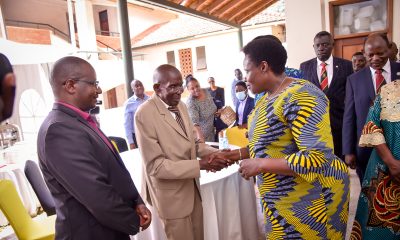
 General3 days ago
General3 days ago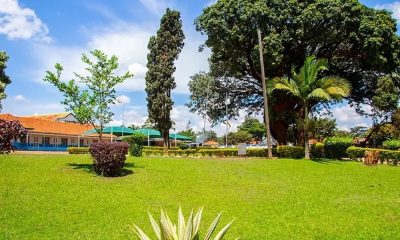
 General2 weeks ago
General2 weeks ago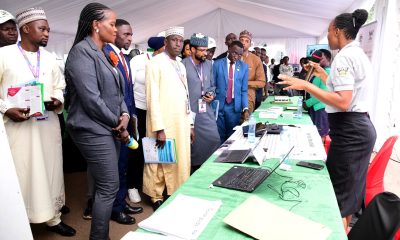
 Computing & IS2 days ago
Computing & IS2 days ago